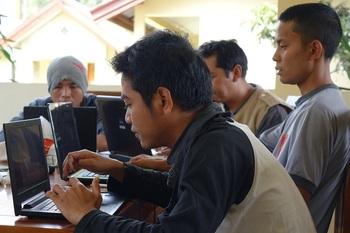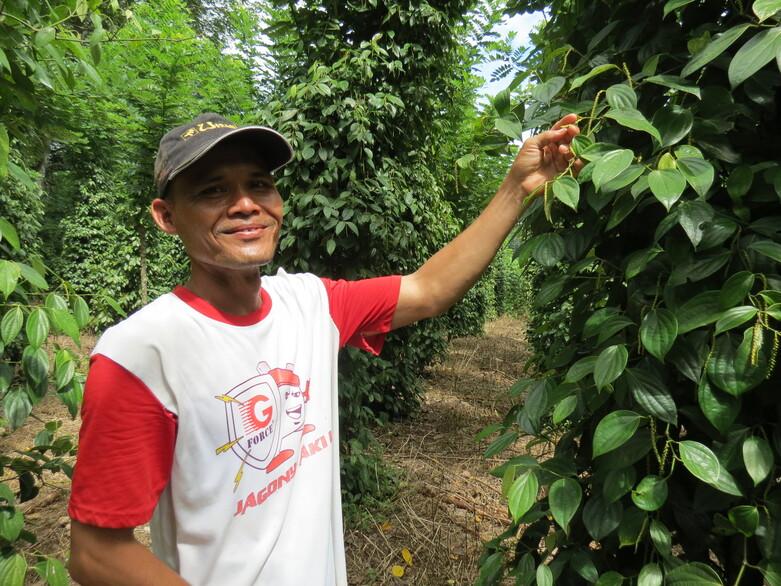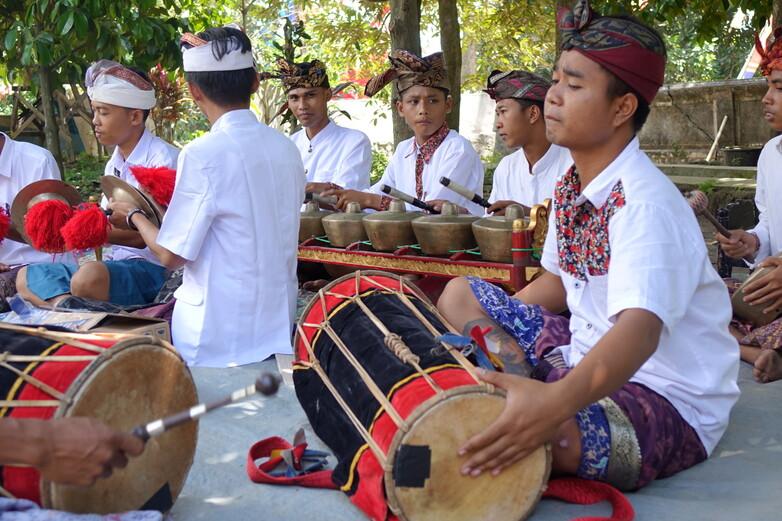Approach
The programme operates in two regions and in two sectors: In West Kalimantan, it is working on agricultural value chains; in West Nusa Tenggara, it focuses on the tourism sector. In both regions, the programme’s main priority lies in promoting the skills and expertise of smallholder farmers and SMEs. It assists them in forging closer ties with markets, becoming integrated in supply chains and promoting environmental sustainability within the supply chains.
Cooperation with private companies plays a key role. The companies are partners that ensure that smallholder farmers and SMEs are directly linked to the market. Through additional investments, innovations and technologies, they also contribute to sustainable development in the relevant sectors. The programme cooperates closely with its political partners, the Indonesian Ministry for Development Planning, the Ministry of Tourism, the Ministry of Agriculture and other public partners. The partners jointly develop measures that can be used to boost competitiveness in other regions and help achieve Indonesia's National Long-Term Development Plan.
Results
Initial successes can already be observed in the field of sustainable agriculture. Regular farmer training sessions are held to teach smallholder farmers how to enhance productivity and improve the quality of their products. A total of 5,000 farmers from the pepper and rubber value chains are taking part in these training sessions. The training modules were devised by the programme, taking account of the quality and quantity requirements of the purchasers of the products, thus ensuring that the products are marketed at an appropriate price.
In addition, the programme encourages the smallholder farmers to join forces in cooperatives. This enables the farmers to speak with one voice, putting them in a stronger position in negotiations with the private sector. At the same time, cooperatives allow larger quantities to be sold, which is advantageous both for the farmers and for the companies purchasing the products.
In the tourism sector, the programme has devised a master plan for the sustainable development of local tourism in cooperation with the regional government in West Nusa Tenggara. Particular attention was paid to integrating the interests of the private sector, the government and civil society. Moreover, a ‘stakeholder platform’ has been set up with regular meetings in order to ensure that these actors discuss their interests when the master plan is being implemented too.
In addition, the programme has managed to establish partnerships with companies in the tourism sector. It has teamed up with reputable travel operators to develop green and sustainable tourism products that meet the increasing demand for ‘ecotourism’. As a result, 100 SMEs in the region have been integrated into the value chain.
The Indonesian Ministry of Tourism is following all of the programme activities. It is harnessing experience and lessons learned from these joint efforts as the basis for developing a national standard for sustainable tourism. Work on the standard has now begun.


